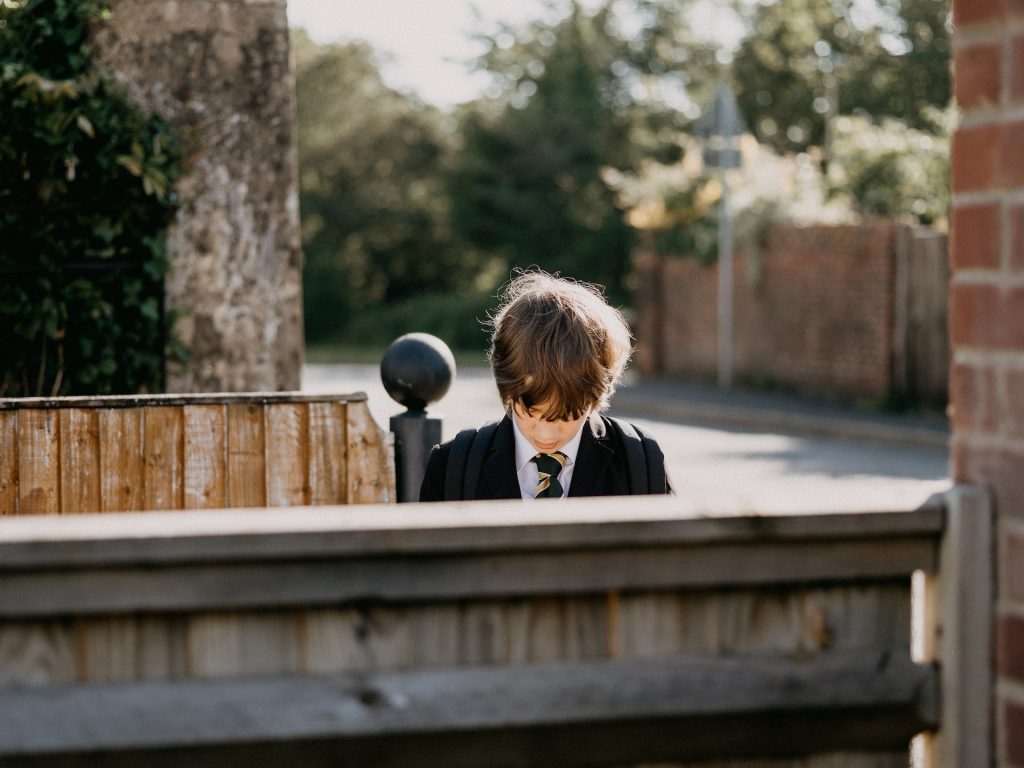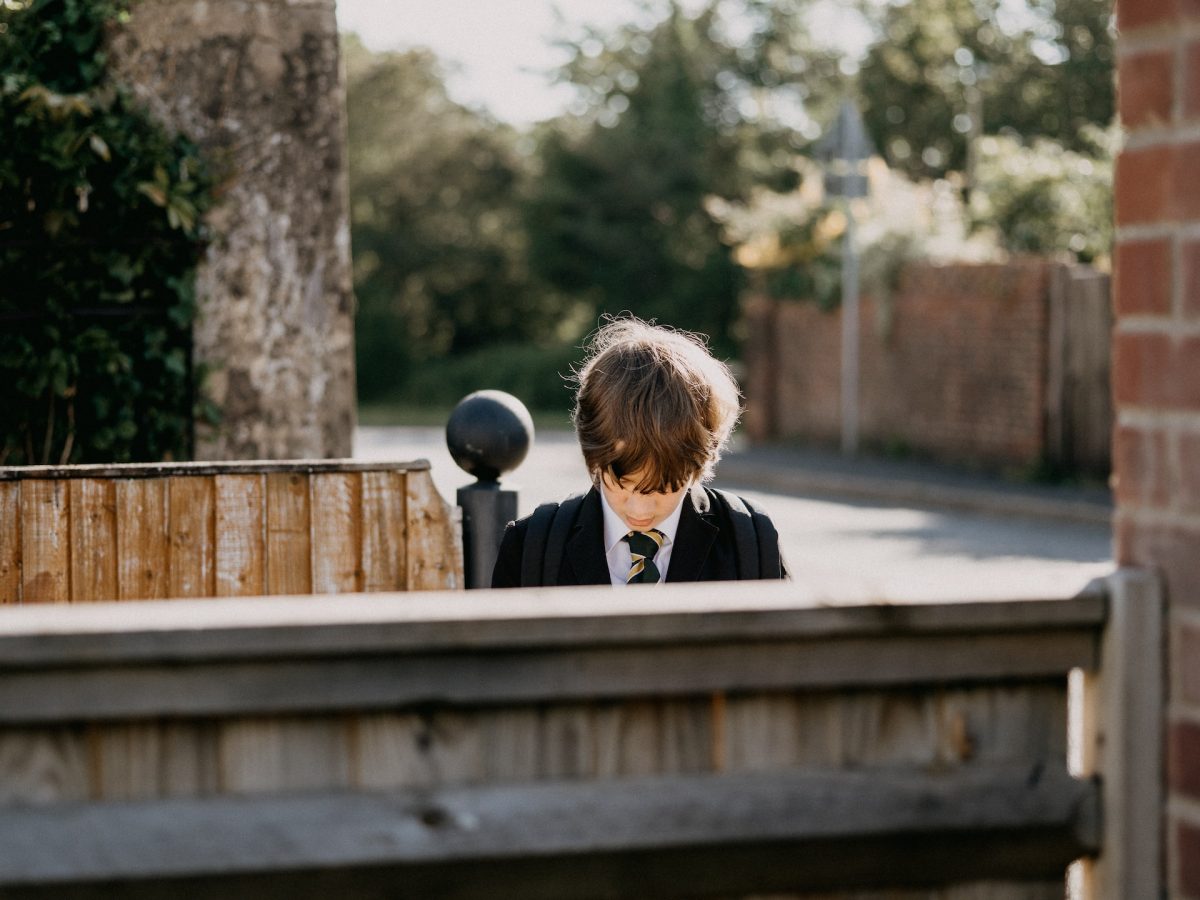
Young people and the desire for connection
And our latest update: Lent 2023
Our Common Good Schools Project Leader, Jo Stow, here reflects on the impact of our individualistic culture on young people, and reports on how our work with schools is addressing the fundamental importance of relationship.
A secondary teacher colleague and I met recently. Reflecting on the loss of in-person contact in school during the pandemic, he confided that “our young people are desperate for connection”.
That desperation for connection may be linked to a decline in students’ mental health and well-being that was predicted in the IPSOS poll of July 2021[i], as a long-term effect of the pandemic. This is not surprising considering that lockdown wrenched young people away from face-to-face connection with friends, teachers and significant relationships within their community.
In addition, students were forced onto mobile phones and laptops for both education and to stay in touch with friends and family. Most young people are now hyper connected. However, one of the key findings of UK Onward’s research was that the ‘always online’ culture in fact exacerbates disconnectedness and drives detachment:
“young people who rely on social media for validation or socialising are becoming disconnected from democracy and social norms.”[ii]
Through conversations with colleagues, I know that schools are acutely aware of these ongoing challenges. During the pandemic, vulnerable children were allowed to attend school alongside the children of key workers, as connection was recognised as vital for their health and wellbeing. This remains normal practice when schools must close. The mental health and wellbeing of students continues to be of major concern.
On their own
Isolation does something to erode trust. At Together for the Common Good (T4CG), we believe in the importance of human connection. Our work is informed by Catholic Social Teaching which regards human beings as embodied, social beings made in the image of God. We thrive when we live in relationship with Him and with each other.
“Seek the peace and prosperity of the city to which I have carried you into exile. Pray to the Lord for it, because if it prospers, you too will prosper.” Jer. 29.7
But since 1950 a culture of individualism has taken hold, and so it is no surprise that our social fabric has suffered. [iii] In a culture of the self, how can young people develop trust? Increasingly atomised, if they don’t know their neighbours, how can young people learn to trust? UK Onward, an independent, not-for-profit think tank, points to dramatic changes over the last few decades:
“Young people appear to be around half as likely to say they think other people are trustworthy as they were sixty years ago, with 56% of young people saying that other people could be generally trusted in 1959 compared to 30% today. This represents nearly double the rate of decline of older groups, and there is evidence to suggest that this may be particularly impacted by the pandemic.”[iv]
It is clear that this shift is not simply due to the Coronavirus pandemic. The authors show that a gradual decline in social trust, already underway, was merely brought into sharp focus and accelerated by lockdowns. This suggests that things are unlikely to ‘go back to normal’.
Schools work hard to prepare students for adult life and work. But when they leave education, what sort of a world are they stepping into?
UK Onward’s research The Kids Aren’t Alright, recognises the trends towards further atomisation and their consequences, not only for mental health but also for the social cohesion, the economy and democracy:
“Young people today are unhappier, less socially trusting, and more detached from society than young people historically or older people today. They have fewer friends and lower quality friendships. They are less likely to volunteer or contribute to their neighbourhood. They are more likely to suffer emotional problems at school and stress at work. And their narrowing social networks are undermining economic mobility. All of these are self-reinforcing, with narrower networks driving greater loneliness and lower social trust. This is not just about rising loneliness among young people. It is also driving a generational slide away from social and democratic norms towards atomisation.” [v]
As these trends continue, will they consider themselves victims of their circumstances and consumers with rights that need fighting for, or engaged citizens with agency, able to take responsibility? The time for acting to prevent the ‘generational slide’ is now.
The UK Onward report, Age of Alienation concludes,
“We must act – to deliver a much-needed jolt of participation and contribution to younger generations who have increasingly lost touch with each other and their communities.”
Time to Act
The Common Good Schools (CGS) programme offers young people just that! It gives schools an opportunity to make meaningful connections with local community groups and institutions. More particularly, CGS allows young people to meet and form relationships with people in their school’s neighbourhood who they might not ordinarily get to know.
Through ten lessons and assemblies, students learn about Common Good principles and consider how they each have something important to contribute to society. Community Engagement Activities give the opportunity for their learning to be applied. Our desire is that by volunteering and enjoying new friendships, young people will establish connections in the local neighbourhood which can be developed.
These new bonds of trust generate a sense of safety and lead to improvement of mental health and wellbeing and create a sense of shared pride in the neighbourhood. Social action in this common good approach is more than service, it is not just one way traffic. The building of reciprocal, mutual relationships leads to all parties experiencing their dignity and worth, and over time the reweaving of the social fabric. Every member of the community can contribute according to their ability and every contribution is seen as valuable.
Establishing Common Good Schools
Almost a year on from my appointment as Common Good Schools Project Leader, the number of schools engaging grows. The top priority has been to meet with senior leaders, teachers, chaplains, MAT directors and other key leaders in education to share T4CG’s vision and the CGS programme and listen to the challenges faced in our schools. We’re in a great position to have established some strong relationships.
Our strategy is to partner with a small number of different schools to see the impact of CGS in a variety of settings. So far, we work with Catholic and Church of England schools, a Special Educational Needs school, and a community school in a deprived area; we are also developing a relationship with an independent school, and with a Multi Academy Trust. We operate a discretionary bursary fund to enable schools under financial pressure to participate.
The flexibility of the Common Good Schools resource means that it can be used in a variety of ways in different contexts. One school is using it as part of their personal development programme in vertical tutor groups; another as an extra-curricular activity; yet another school will use CGS to enhance their PSHE curriculum, as it helps with citizenship and Character Education as well as helping children with Spiritual, Moral, Social and Cultural development. For church schools, it provides an opportunity to live out their virtues and values, enhancing the Christian life of the school so all can flourish.
A fruit of the pilot stage of Common Good Schools was a Special Educational Needs (SEN) version of the programme, developed for students with an EHCP for speech, language and communication. One of our partner schools has now embedded it into their annual timetable for their Year 10s. It is our hope that more special schools, and mainstream schools with SEND provision, will benefit from this version.
As the conversation with my secondary school teacher friend continued, he described how he continues to be shocked by the cheerful, “good mornings!” he receives as students stand on the street, eagerly waiting for the school gates to be opened. His shock, rather that pleasure, inferred that under the surface of their enthusiasm was a deep need for conversation and acknowledgement. “Our young people are desperate for connection.”
With the help of T4CG, a school using the Common Good Schools programme can generate a culture where young people see themselves as having something important to offer to society and to each other. Further, the programme builds bonds between the school and its neighbours in the community, creating a wider culture of connectedness where bonds of trust are strengthened.
A school rooted in its community can be a force for the common good.
Prayer requests
We’d be grateful for prayers during the next few weeks.
- School staff who will receive training and commence the programme in March.
- Schools actively seeking community partners to work with.
- Students who will participate in the Common Good Schools programme.
- Jo, as she develops relationships with partner schools and seeks new partners.
“For the whole law is fulfilled in one word: “You shall love your neighbour as yourself.” Gal. 5:14
Jo Stow
[iii] Bowling Alone: The Collapse and Revival of American Community [Robert Putnam, 2000]
[iv] An age of alienation, why we must end the dangerous decline in community life [UK Onward, 2021]
[v] The Kids Aren’t Alright: the 4 factors driving a dangerous detachment from democracy [UK Onward 2022]
For more details about the Common Good Schools programme, contact our Common Good Schools Project Leader, Jo Stow.
Jo Stow
Common Good Schools Project Leader
jo@togetherforthecommongood.co.uk
07886 240 685

